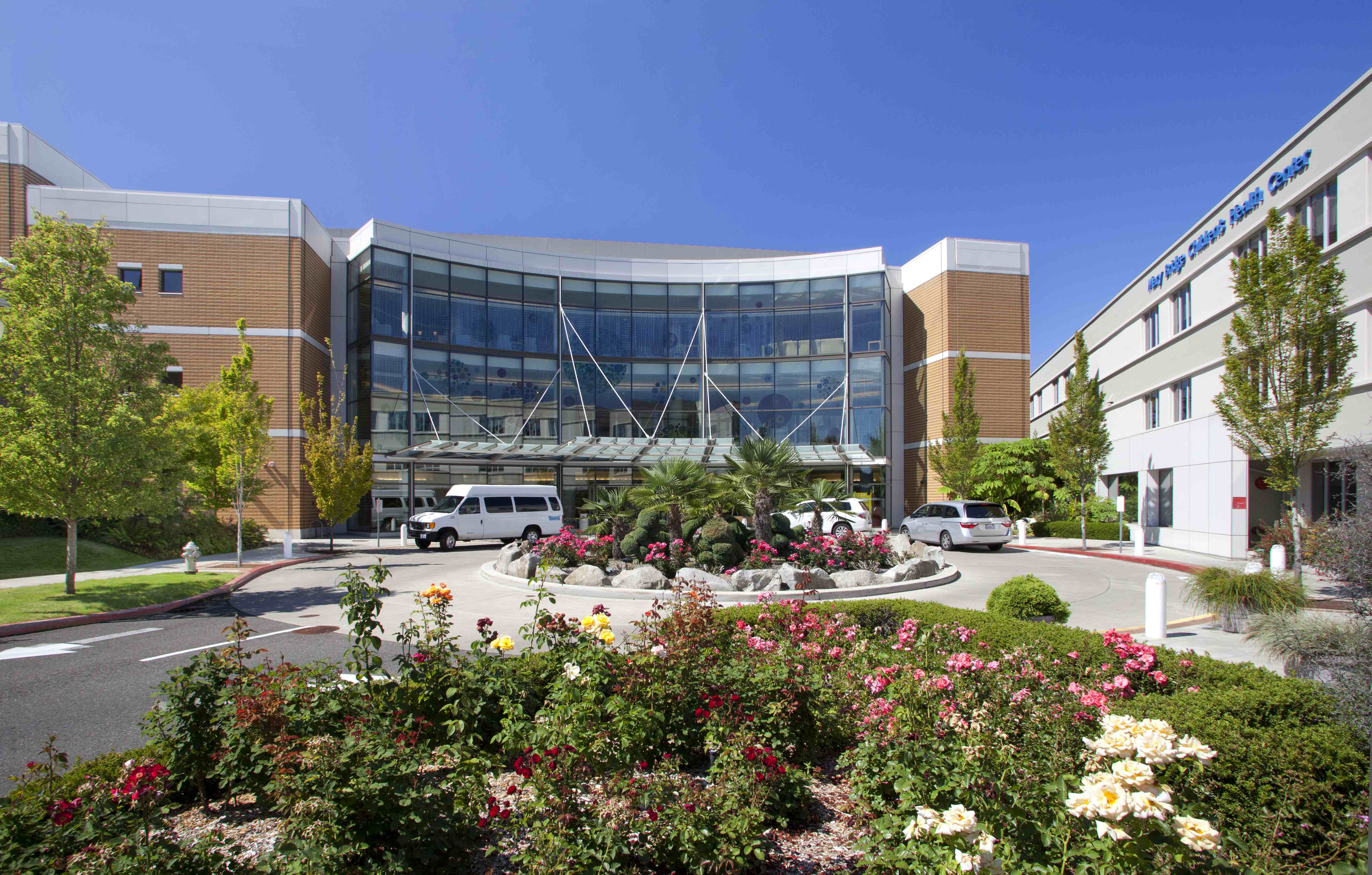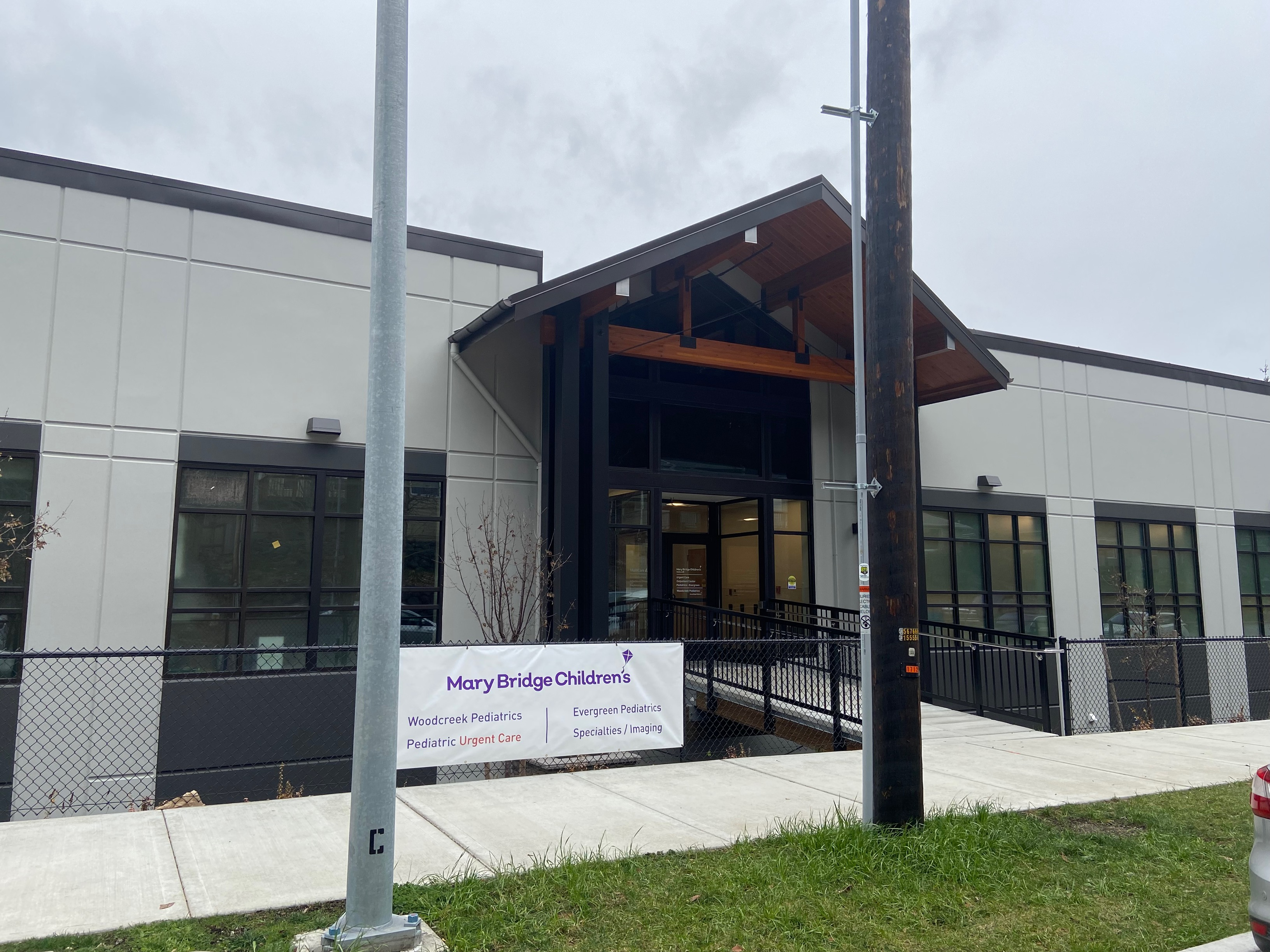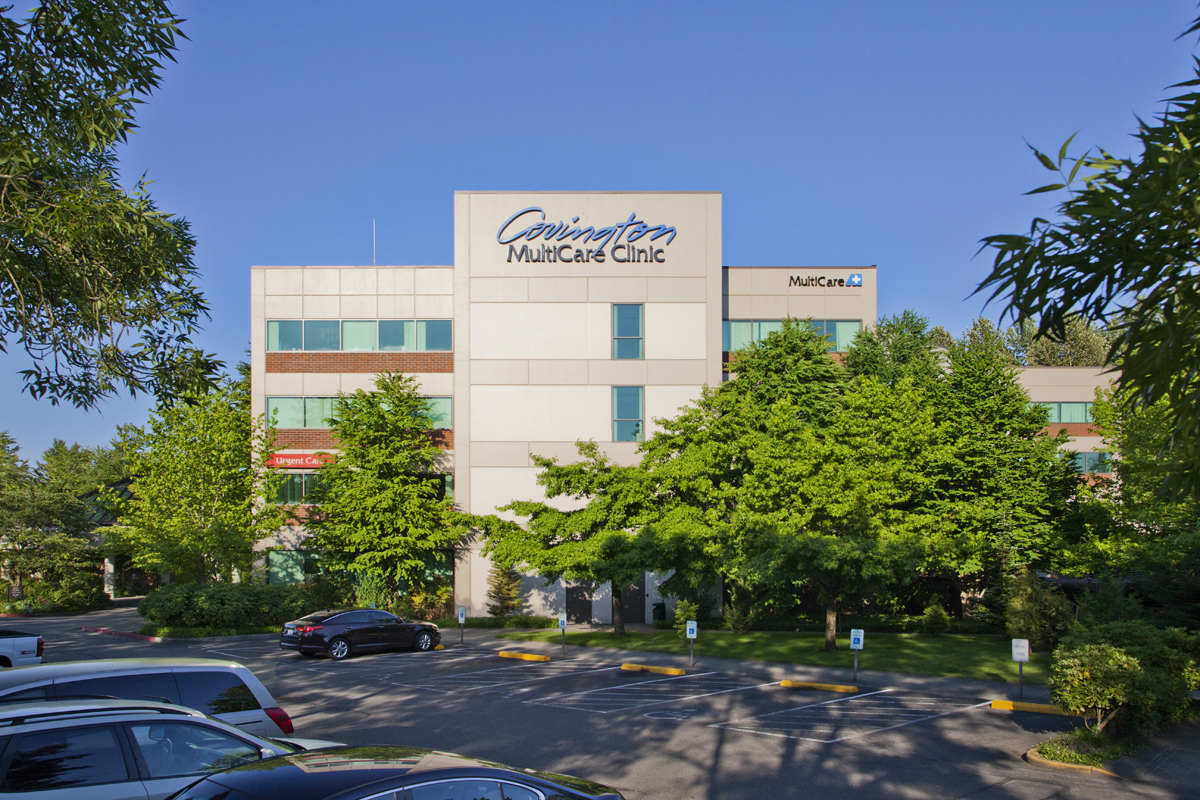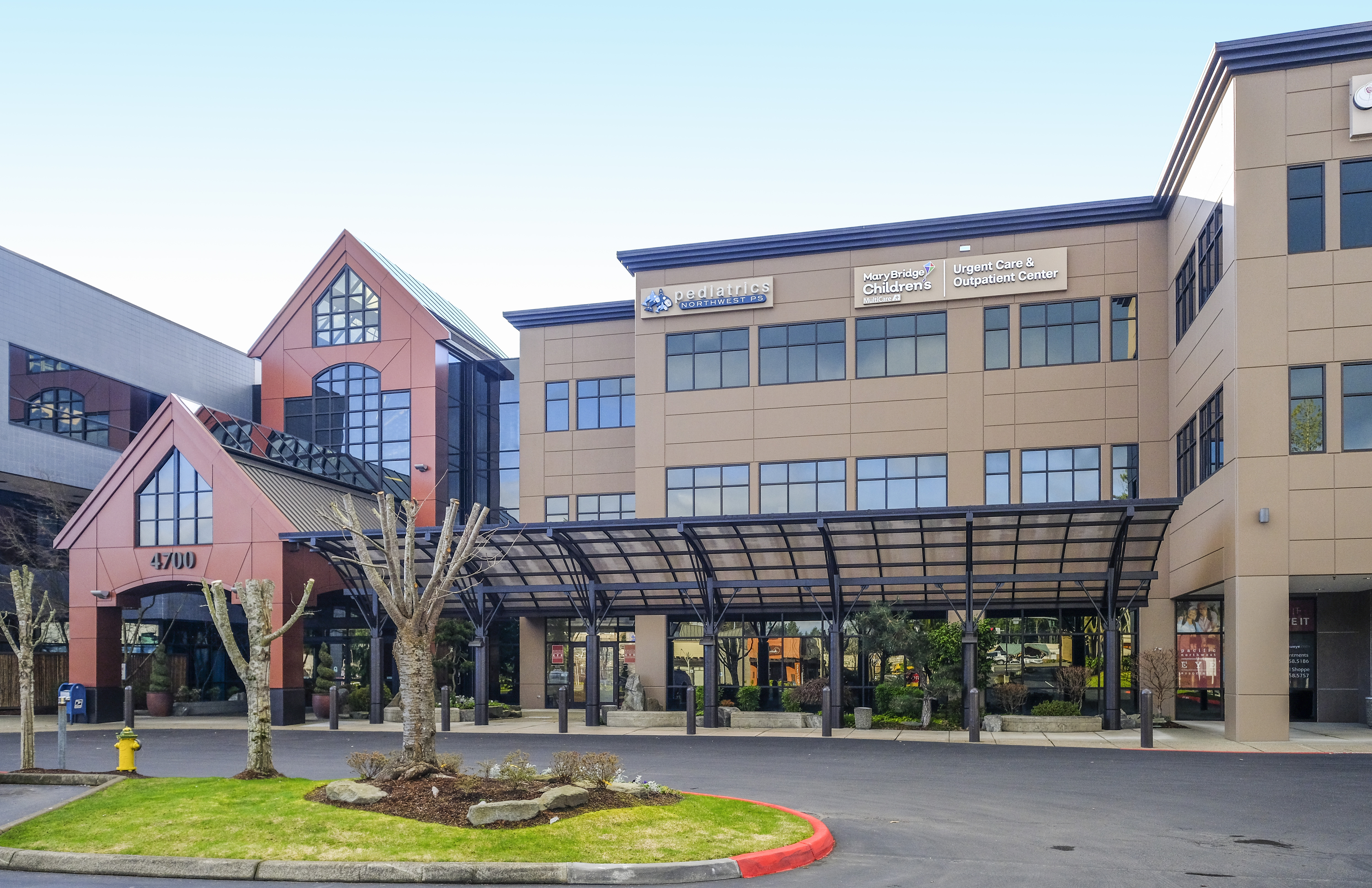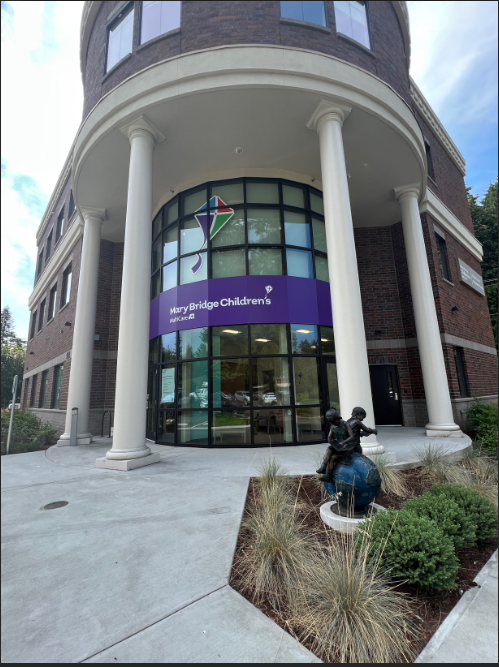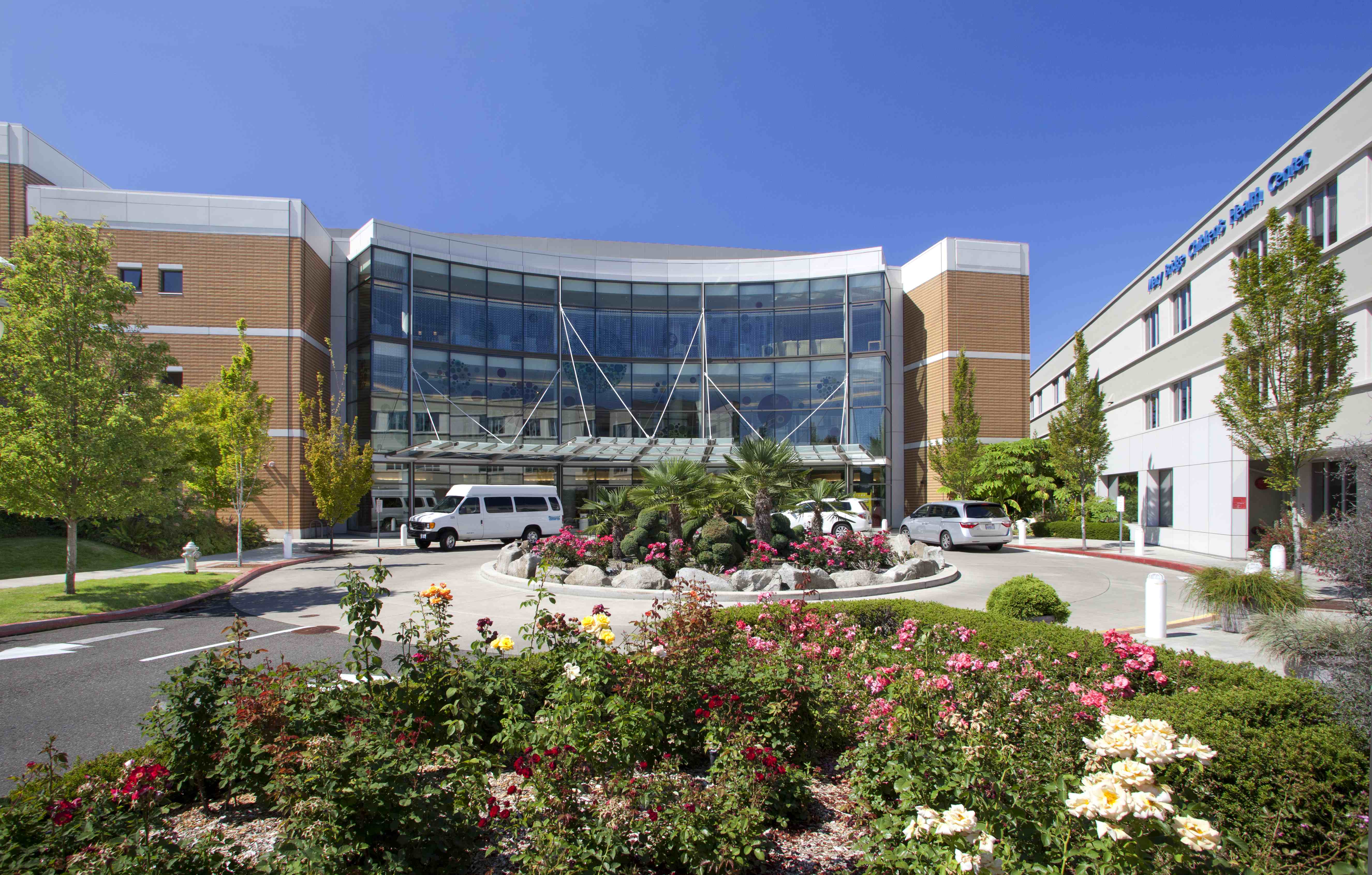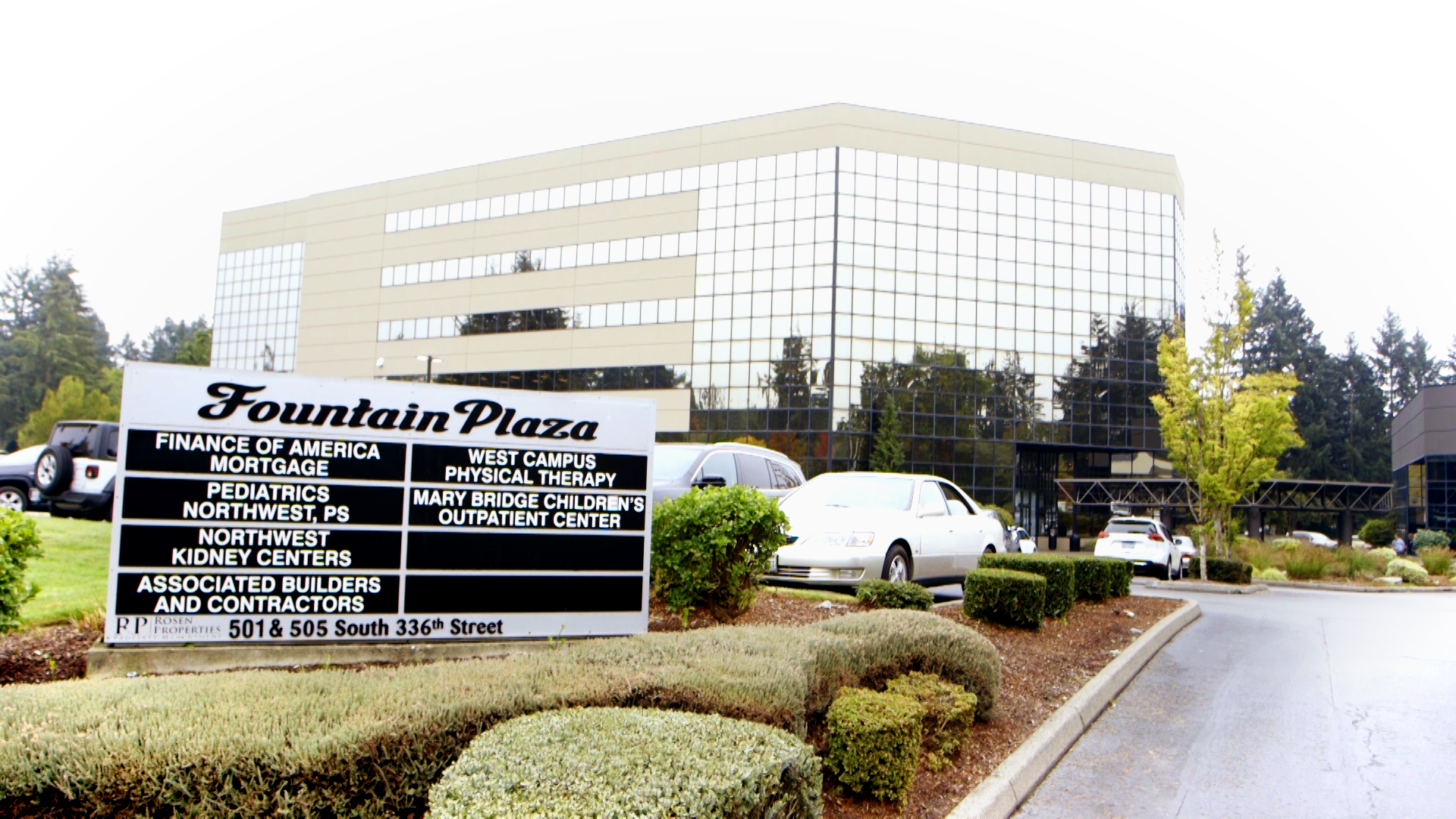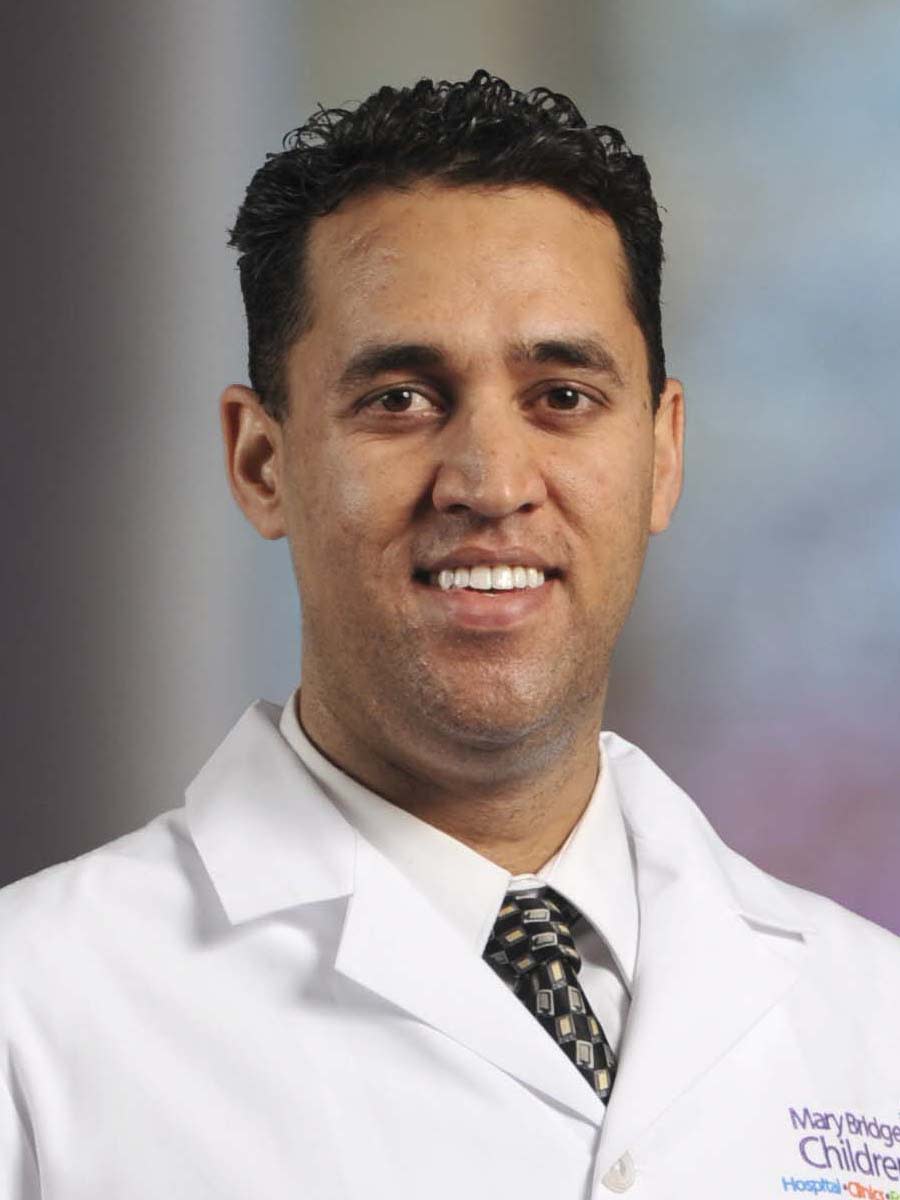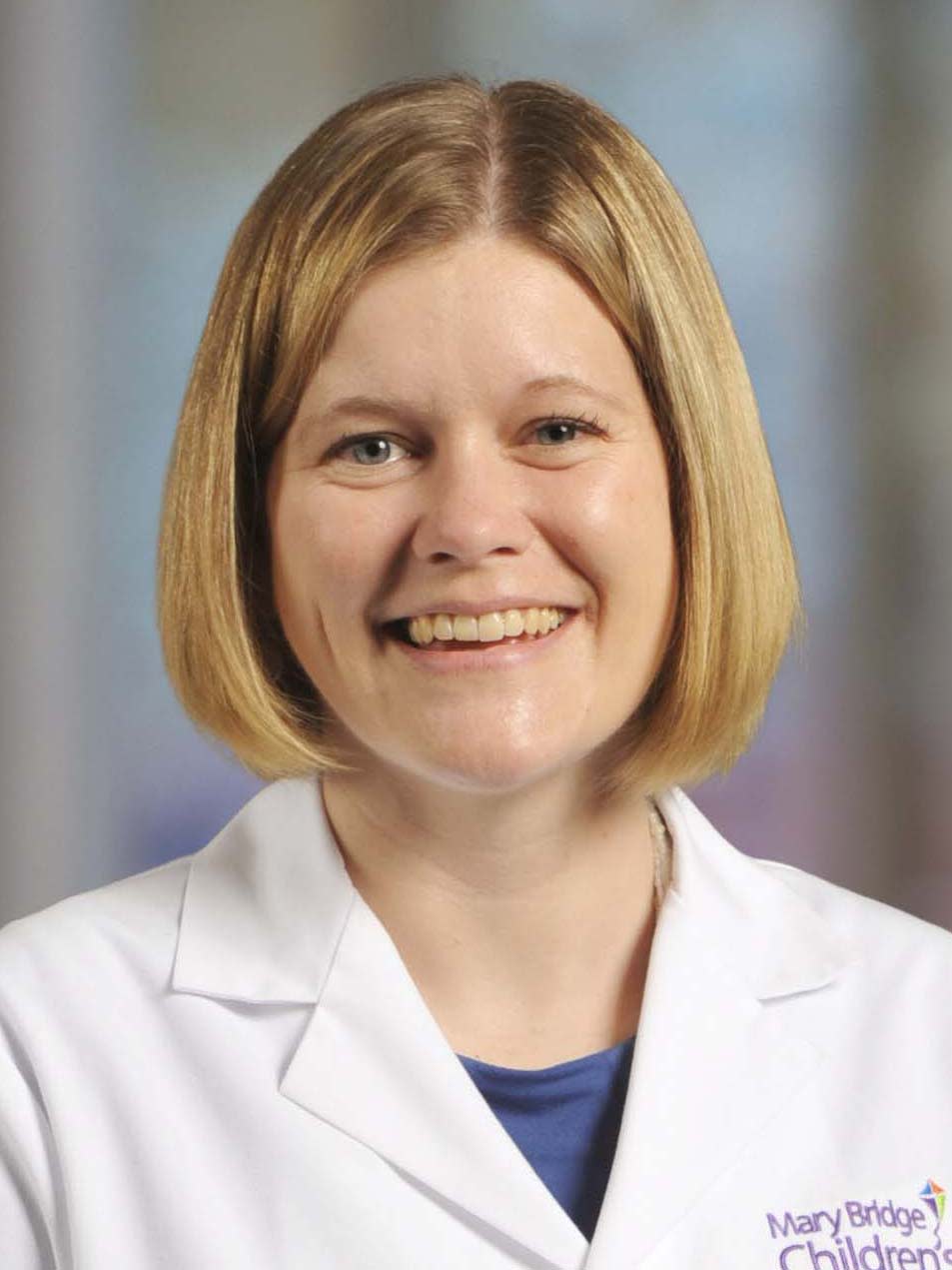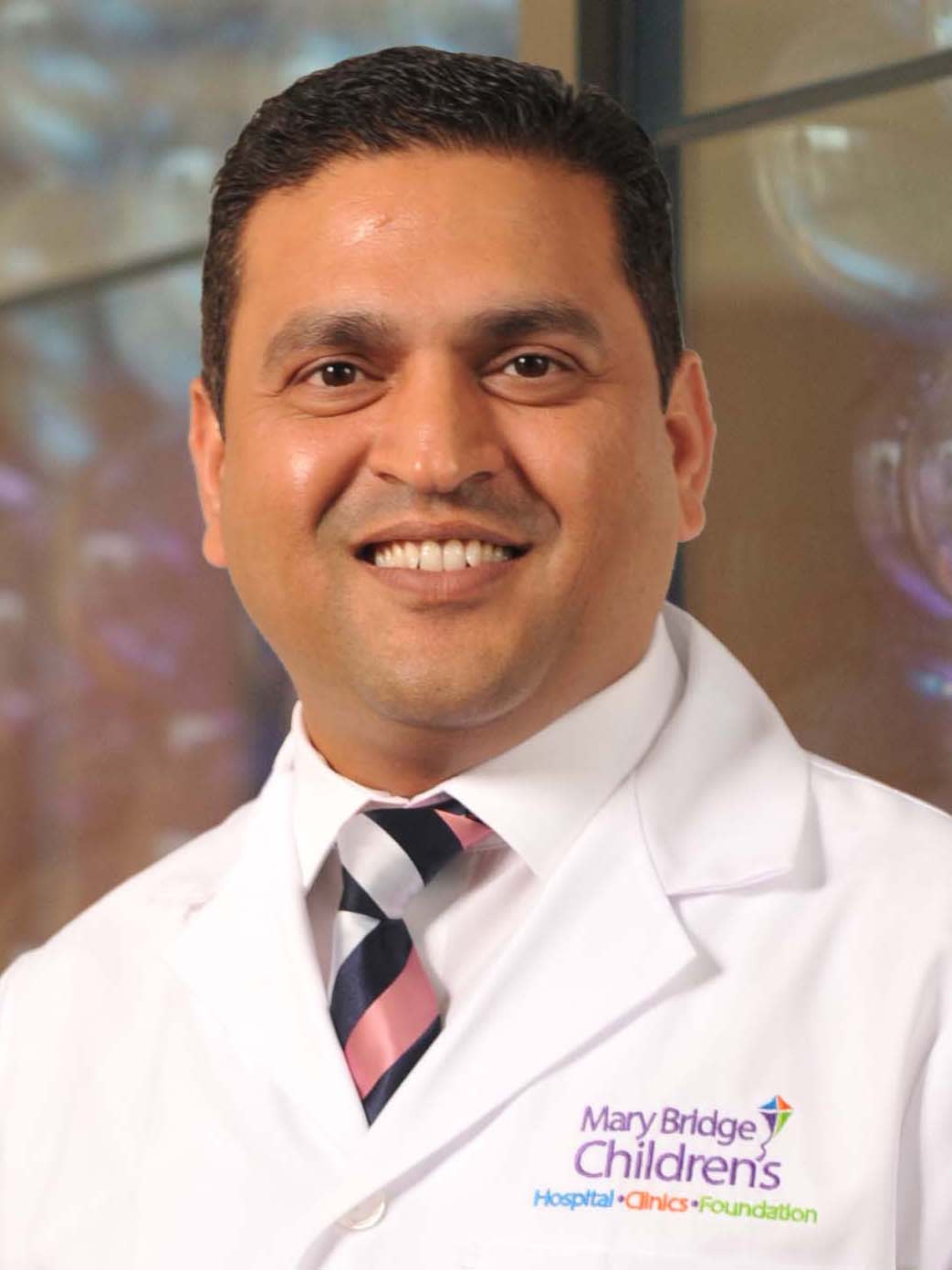Advanced, family-centered care for children with digestive, liver and nutritional problems

We don’t just treat pediatric digestive conditions — we help your child get back to living well
A properly functioning digestive system is key to your child’s health. In addition to breaking down food, the many organs and parts of the digestive system work together to ensure the body absorbs nutrients, turns them into energy and disposes of waste.
Sometimes children experience problems with this process, and when that happens our team is here to help. Families turn to us because we offer:
Comprehensive support from a multispecialty team. Our team includes board-certified pediatric gastroenterologists, nurse practitioners, nurses, dietitians and support staff who bring years of clinical training and expertise in caring for children with digestive disorders. We work closely with a variety of professionals across Mary Bridge Children’s, from social workers to child life specialists, to ensure you have the support you need.
Expert, compassionate care for abdominal pain and other difficult symptoms. Most children experience the occasional stomachache, but when abdominal pain is persistent or accompanied by other worrisome symptoms, like vomiting or weight loss, it can be a sign of a serious problem. Many conditions can cause pain in the stomach, from Crohn’s disease to constipation, among others. We work closely with families to uncover the cause of abdominal pain and develop a plan to treat it.
Specialized care for constipation and encopresis. While constipation and encopresis (leaky stool) are common in children, these conditions can be painful and very disruptive to their daily lives. We specialize in evaluating and treating children with these problems using a variety of strategies, including medications, diet and behavior modification, and more to bring relief.
Leading-edge care and treatment for inflammatory bowel disease. Mary Bridge Children’s is a member of ImproveCareNow, a national network of parents, clinicians, researchers and children’s hospitals working together to continuously enhance the care of children with Crohn’s disease and ulcerative colitis — collectively known as inflammatory bowel disease (IBD). As a network participant, we follow the standard of care developed by experts at the forefront of treating IBD.
Collaborative care for liver diseases. The liver is an important part of the digestive system. Among other jobs, the liver removes toxins from the blood and helps store energy. Our team collaborates with Seattle Children’s to co-manage the care of children with a range of liver diseases as well as short bowel syndrome.
Nutrition care and guidance. Digestive disorders can affect your child’s ability to get the nutrients they need to grow and develop properly. Our dietitians are specially trained to provide diet and nutrition counseling related to GI conditions as well as support children receiving parenteral nutrition (TPN) and nutrition through a feeding tube. Together, we address nutritional concerns and help your child implement and follow dietary changes as part of treatment.

How to refer a patient
Referring providers should submit referrals via Epic. For those not on Epic, please fax referrals to 253-864-3939.
For more information about gastroenterology, hepatology and nutrition care at Mary Bridge Children’s, please call 253-792-6630.
Conditions treated
- Abdominal pain
- Gastrointestinal allergic problems and food intolerances
- Celiac disease
- Chronic diarrhea
- Constipation and encopresis (involuntary stool leakage or stool accidents)
- Feeding difficulties and failure to thrive
- Gastroesophageal reflux
- Gastrointestinal bleeding
- Inflammatory bowel disease
- Liver diseases
- Motility disorders
- Short bowel syndrome
What to expect and next steps
We look forward to meeting you and your child. Please arrive for your appointment 15 minutes early to allow ample time for checking in and filling out necessary paperwork. Families who arrive more than 15 minutes late may have to reschedule their appointment.
The following information will help you plan for your visit.
Initial and follow-up appointments
During your child’s first visit, our specialists will complete a medical history and perform a physical exam to determine if further testing is needed, such as X-rays, other imaging tests or blood work. When additional outpatient tests or procedures are necessary and that extra level of comfort is needed, we offer child-friendly sedation services.
Please note that in some cases we do recommend a consultation with a pediatric dietitian during initial or follow-up appointments. It’s a good idea to verify ahead of time that your insurance plan covers this particular service.
After we make a diagnosis, together we develop a plan for improving your child’s digestive health and then share that plan with your child’s primary care provider. Please allow one to two weeks for lab results. We will call you to discuss any abnormal test results. Normal test results will be mailed to you.
Preparing for your appointment
Following these tips can help you get the most out of your time with our specialists.
Obtain medical records. Ask your child’s primary care provider to send chart notes, X-rays and any lab results regarding your child’s condition. If tests were performed outside Mary Bridge Children’s or MultiCare Health System, please bring these results with you.
Bring a list of prescription drugs. Include all medications, vitamins and supplements your child is taking.
Discuss the upcoming clinic visit if your child is developmentally ready. Often a first appointment consists of a medical history and a physical exam. However, sometimes procedures such as blood draws are necessary, so it’s important to prepare your child for that possibility.
Arrange care for siblings. If you are unable to arrange care, please ensure other children can engage in a quiet activity so you can focus on the visit.
Arrive 15 minutes early. Being early ensures adequate time for checking in and filling out any necessary paperwork. If you are more than 15 minutes late, we may have to reschedule your appointment.
Turn off cellphones and pagers. It’s easier for both you and the specialist to focus on your child when communication devices are switched off. This also helps maintain a calm, quiet environment for all patients.
Leave food and drink behind. Please refrain from bring food items or beverages into the examination room.
Medications and refills
For medication refills, please call your pharmacy. Medications are refilled up to your child’s next appointment. Keeping those appointments ensures that your child’s refills can continue without interruption.
Please keep in mind that some medications are custom-made according to a patient’s individual needs through a process called compounding. This process can increase the amount of time it takes to obtain your child’s prescription and any refills. In some cases, prior authorization from your insurance company is necessary. Because these steps can take time, we recommend requesting refills as soon as possible.

